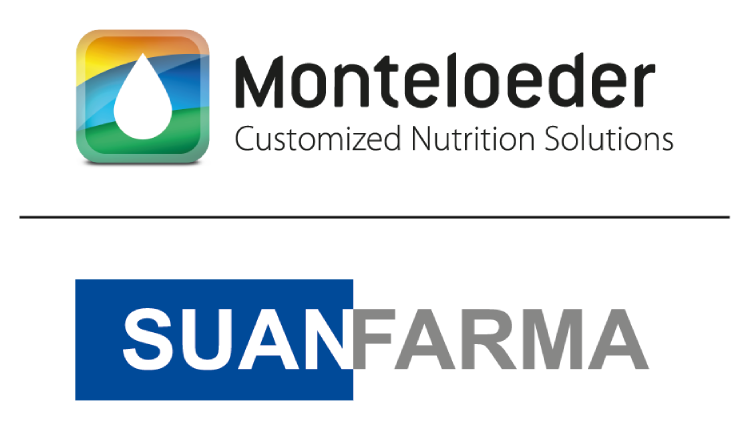Promotional Features
Effects of a botanical ingredient for weight management: Metabolaid
By Dr. Jonathan Jones
Product Development Manager, Digital Health Scientific Adviser
1. Weight management: A growing problem
Weight management is a major problem for a large population of adults. Sadly, the prevalence of overweight individuals worldwide has increased dramatically in recent decades, with over a third of the adult population affected. If we focus our attention to the higher-income countries, we can observe that over half of the population is overweight; being overweight is the new norm.
In the vast majority of cases, excess weight is a consequence of unhealthy lifestyle habits, namely a sedentary lifestyle and poor diet. Thankfully, body weight can be controlled, through an adequate diet and exercise intervention, although many times it can be a daunting task.
2. Metabolaid
Monteloeder is a company based in South-Eastern Spain, with over 20 years of experience in supplying Mediterranean-based plant extracts, as well as developing proprietary blends focused on maintaining a healthy lifestyle, such as for sports performance, weight management and beauty. In this sense, Metabolaid is a patent-protected ingredient developed by Monteloeder SL based on proprietary technology-based lemon verbena and hibiscus extracts.
The synergistic effects of the active compounds of the proprietary blend has been demonstrated, both at the preclinical and clinical level, with noticeable results in helping control body weight, when part of a healthy diet and active lifestyle (Boix-Castejón et al 2018, Lee YS et al 2018, Herranz-Lopez et al 2019).
The IP-protected blend has been demonstrated to activate the AMPK pathway. AMPK is a metabolic enzyme which acts as a switch to enhance energy consumption and increase the metabolism of cells. Specifically, when AMPK is activated (ie it is phosphorylated, pAMPK), there is an increase in energy consumption, reduced lipogenesis (fat production), and enhanced fat metabolism (“fat burning”). These properties make the activation of this enzyme an ideal target to help manage body weight.
3. Clinically-proven results
Several clinical studies have been performed with Metabolaid in overweight individuals, but were otherwise healthy (ie normal cholesterol levels, glucose, triglycerides, etc). The studies performed have all been double-blind, placebo controlled, with a single intake (500 mg) of the product daily, and combined with diet and moderate exercise (30 minutes walking per day). After 60 days of taking Metabolaid (Boix-Castejón et al 2018, Herranz-Lopez et al 2019), the participants reported to have lost twice as much weight than with diet alone.
Furthermore, body fat mass was assessed by the gold-standard method, the DEXA Scan, using this non-invasive method, an almost 4% decrease in body fat mass observed in those taking Metabolaid compared to the group only on diet , which also corresponded to 4 times less waistline. This translated to around 4kg of weight lost after 2 months thanks to Metabolaid. Furthermore, an interesting effect on appetite regulation was observed in the participants taking Metabolaid.Under normal circumstances, when someone goes on a diet, the body responds by increasing hunger, which is regulated a series of hormones which travel to and from the gut and brain. Also, the body decreases the resting metabolic rate, making a larger amount of nutrients to be stored in the body in the form of energy (that is, as glycogen and fat). On the other hand, when individuals on a diet take Metabolaid, these effects are reversed. Specifically, hunger-inducing hormones such as ghrelin are decreased compared to those on a diet, while satiety-inducing hormones such as GLP-1 are increased. This translates into the individuals perceiving less hunger during the day while on a diet, as well as feeling more satisfied with the amount of food they eat during the meals.
Furthermore, Metabolaid helps improve leptin levels. Leptin is a hormone that regulates satiety, which ironically is generally at very high levels in obese individuals.This is due to the fact that obesity causes leptin resistance, which means that more leptin must be released from the fat tissue to the bloodstream in order to induce satiety. This is one of the reasons losing weight is difficult: excess weight increases hunger. With Metabolaid, we observed an over 50% decrease in leptin levels compared to those on a diet and taking a placebo. This means that these individuals had better leptin sensitivity (less leptin resistance), which helps them regulate more easily their hunger. Another hormone that was observed to be improved was resistin. Resistin is positively correlated with LDL cholesterol, also known as the “bad cholesterol”; when one is high so is the other. High levels of resistin, which is secreted by the fat tissue, cause the liver to produce more LDL, while also making the liver less efficient in removing LDL from the bloodstream.The results of our clinical studies report that resistin is decreased by a third compared to those with diet alone. These lower levels of resistin are quite possibly a consequence of decreased adiposity (less fat tissue), especially from the abdominal area which is where the resistin is mainly secreted. Therefore, it can be concluded that Metabolaid helps reduce LDL levels in blood by decreasing resistin levels (possibly due to the decreased amount of fat tissue).
4. Final conclusions
The studies suggest that Metabolaid can accompany any consumer during their journey to maintain a healthy weight. The synergistic effect of the active compounds of the proprietary blend have been clinically proven to help reduce body fat, increase energy/metabolism and suppress appetite, when combined with a healthy lifestyle (diet and exercise). Its composition allows Metabolaid to be easily incorporated into many formulations, being low dosage (500 mg per day), water-soluble and stable in many food and supplement matrixes. The work presented with Metabolaid, a patent-protected blend, has been partially financed by the European Union´s Horizon 2020 research and innovation program under grant agreement Number 783838.






